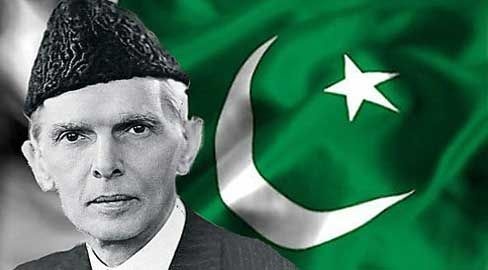“Malaysia, Truly Asia”, is a song sung by Malaysian singer “Yuna”, and it’s also been used as a tagline by the tourism department of Malaysia. In 2015, when I received scholarship for my Doctorate Degree in one of the Malaysian universities. I was excited about going to a country termed as “Truly Asia”. But after spending few months in Malaysia, I realized that it’s not just about the beauty of the country or the way they promote their tourism. There is so much more to be learned from the rise of Malaysia, and how a nation’s fate was transformed. It may sound as an old rhetoric that countries need vision to prosper, but when you practically witness the importance of the notion, then it becomes hard not to discuss it.
We are all aware that it was Mr. Mahathir Mohammad, who in his 22 year-stint as the Prime Minister revolutionized Malaysia. He holds the credit for opening up Malaysia to the world, the rapid modernization and economic growth witnessed in his tenure are the reasons behind Malaysia’s prosperity. However, I am not interested in the numbers game here, anyone can use Google to acquire that information. My interest is more in how he envisioned Malaysia, some 25 years ago, and whether today’s Malaysia is in accordance with his vision or not?
In 1991, Mr. Mahathir Mohammad, in an article outlined his vision about Malaysia. He sketched the picture of modern Malaysia, in his article “Malaysian: The Way Forward (Vision 2020)”. He stated that:
“Hopefully the Malaysian who is born today and in the years to come will be the last generation of our citizens who will be living in a country that is called ‘developing’. The ultimate objective that we should aim for is a Malaysia that is a fully developed country by the year 2020. What, you might rightly ask, is ‘a fully developed country’? Do we want to be like any particular country of the present 19 countries that are generally regarded as ‘developed countries’?”
“Without being a duplicate of any of them we can still be developed. We should be a developed country in our own mould. Malaysia should not be developed only in the economic sense. It must be a nation that is fully developed along all the dimensions: economically, politically, socially, spiritually, psychologically and culturally. We must be fully developed in terms of national unity and social-cohesion, in terms of our economy, in terms of social justice, political stability, system of government, quality of life, social and spiritual values, national pride and confidence”
The article answers and explains every question that how this dream will be realized. But more importantly, the article enlightens us about the personality of the man. A man with passion, rigor, determination and above all with a vision. He understood the problems faced by his country, what needed to be done and in which direction the country needed to be took forward. For becoming a developed a country by 2020, he discussed about the nine challenges Malaysia had to overcome, those were:
“Establishing a: united Malaysian nation; psychologically liberated, secure, and developed Malaysian Society; mature democratic society; fully moral and ethical society; mature, liberal and tolerant society; scientific and progressive society; a fully caring society will come before self; economically-just society; a prosperous society.”
The first question which one might ask after reading these challenges, whether Malaysian society has overcome all these problems?. To get an unbiased answer, you will have to spend some time in Malaysia. However, by and large they are on the right track, and you can say that today’s Malaysian society is a portrayal of Mr. Mahathir Mohammad 1991’s vision. So is everything perfect in Malaysia? Absolutely not, in fact far from it, recently they went through a political turmoil. The current Prime Minister has serious allegations on him regarding corruption. Due to reduction in international oil prices, the economy has taken quite a hit, the currency saw devaluation, etc. But does this mean that they have swayed away from their vision? The answer is no, they might have been going through a problematic phase, but the foundation laid 25 years ago had such deep societal roots that it’s almost impossible to reverse the process now.
Now let’s equate this with the situation in Pakistan. Pakistan, thus far had only one unanimous leader, Quaid-e-Azam Muhammad Ali Jinnah, the father of the nation. He is the only political or non-political leader (considering the number of coups this county has seen) who is not controversial, respected and loved by all. But even there is no unanimity on his vision about Pakistan. Some say that he wanted a moderate and liberal society, while other says, he wanted a conservative society. Although, from his life style and speeches, it’s hard to believe that Mr. Jinnah was a conservative man. After him, Pakistan has produced only one leader of recognition, Mr. Zulfiqar Ali Bhutto, a foreign graduate, follower of socialism. However, his vision about the country was as ambiguous as any, many of his decisions doesn’t give you an impression of a visionary leader.
The people at the helm of affairs in Pakistan after the demise of Mr. Zulfiqar Ali Bhutto, have only confused the narrative, let alone giving a vision. The result of this is that in year 2016, a women protection bill is termed as “western conspiracy” or “zan-mureedi” etc. We don’t know whether, we want to be a modern liberal nation or a conservative nation holding on to our values. At the moment we are somewhere between the both, clueless which side to choose. There is no uniformity in education system, result of which is lack of harmony in the society. The kids coming out of English medium, Urdu medium schools, and Madrassas, are making sure that society remains divided. We are still undecided that, Art is “halal” or “haram”. Above all that, we had two Noble Prize winners, we made both of them so controversial that you don’t know whether to praise them or bash them.
We as a nation are in the habit of falling for an overnight change, waiting for our “Messiah”, who will change everything for us. Sadly in real world, things don’t work like this, if we want a change in real sense, we don’t need a “Messiah”, we need a vision. A clear plan of action. Once that is decided then we need to stick to it, work hard to achieve it, whoever comes in power during that time period should not bother us. Otherwise, we will be still having this same discussion after another 60 years.



